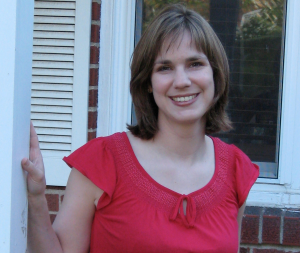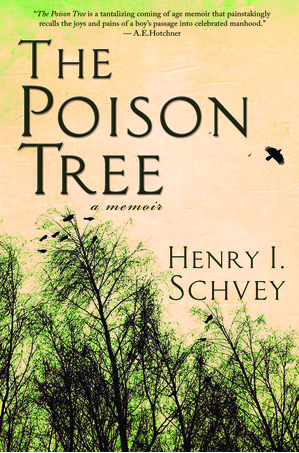Share the post "How to Be a Good Author: An Editor’s Perspective"
by Katherine Pickett
 Do you have what it takes to be a good author? This is not the same as being a good writer, at least not from an editor’s vantage point. No, although working with authors who are skilled with the pen does make an editor’s job more enjoyable, it is only one of many factors to be considered. Rather, it is the writer’s ability to maintain a good business relationship with his or her editor that makes one a good or bad author in an editor’s eyes.
Do you have what it takes to be a good author? This is not the same as being a good writer, at least not from an editor’s vantage point. No, although working with authors who are skilled with the pen does make an editor’s job more enjoyable, it is only one of many factors to be considered. Rather, it is the writer’s ability to maintain a good business relationship with his or her editor that makes one a good or bad author in an editor’s eyes.
Lucky for you, it isn’t hard to be a good author. You can keep your relationship with your editor on solid ground—and reap the many benefits of that relationship—by following this simple advice:
Be respectful. Some authors approach the editing process as a battle, with their editor being their greatest adversary. This attitude can result in yelling, angry e-mails, and nasty comments directed at the editor—the very person who has been entrusted with the precious manuscript. Rude behavior does nothing to encourage your editor to do his or her best work. An attitude of collaboration and mutual respect, on the other hand, will get you much closer to your goal of a high-quality book and will rarely lead to the hurt feelings so common with the opposite approach.
Be patient. If you have put much time and effort into your manuscript, you are likely anxious to hear back from your editor to find out what he or she thought of it. Truly good editing can take some time, however, and most editors have multiple clients, so be prepared to wait. If you are at a loss for how to fill your time, get started on your marketing campaign. It is never too early to gather the names of influential people and publications that may be willing to review your book.
Be timely. If you have agreed to a deadline, do your best to meet it. If you are unable to meet a deadline, do not go to ground and avoid your editor’s calls. Communicate your needs and work hard to make the adjusted deadline. Having to track down an AWOL author is a major pet peeve of all editors and is, frankly, a waste of time.
Be organized. Good organization can save many hours of work for you and your editor. Label your electronic files in such a way that you can always find the most recent version of your manuscript. If you have photos, use a numbering system that indicates which chapter the photo goes with. Finally, keep meticulous research notes so that you can answer the inevitable requests from your editor for more information on where you found your materials. A systematic approach to research will also help you if you decide to publish a revised edition in the future and need to return to your original sources.
Be flexible. Many authors become rigid when an outsider attempts to make changes to their writing. Yet, fighting every change makes the editing process a drudgery for both author and editor. Yes, it is your book, but you have called in professional help for a reason. Your editor is working to make it the best, most marketable book it can be. If you are willing to collaborate, listen to your editor’s feedback, and potentially tweak your initial vision for the project to one that satisfies both of your concerns, you will likely find yourself with an even better book than you ever thought possible!
Be a good communicator. In an age when most communication is done over the Internet, confusion and miscommunication run rampant. Take your time when responding to e-mails and make sure you have answered the questions that were asked. If you have questions for your editor, compile them into one message rather than sending four or five e-mails, each with a separate question. You will save time for yourself and your editor, and you will avoid much of the confusion, wasted effort, and frustration that result from miscommunication.
Be enthusiastic! At times the road to publication has grown so long that authors lose all enthusiasm for their books. When the author is no longer engaged, editing can become a tiresome and boring task. If you want a good, thorough edit, show your enthusiasm for the project. Be open to ideas, and be willing to put in the effort needed to create a compelling piece of writing. Your editor will respond in kind. When each party is fully engaged in the project, the editing process is a fun and rewarding time, and the result is a book both author and editor can be proud of.
It doesn’t take much to be a good author. Remember a few common courtesies and you will always be on your editor’s good side. That can mean great things for you as an author. Most important, you will receive your editor’s best work. You will also likely benefit from his or her extra effort to promote you and your book. What’s more, your reputation as a good author could even help you get that next book published, and isn’t that what being a good author is all about?
Katherine Pickett is the owner of POP Editorial Services, LLC, and the author of Perfect Bound: How to Navigate the Book Publishing Process Like a Pro (www.HopOnPublishing.com). Since 1999 she has edited more than 300 titles in a wide range of topics and genres. She is a member of the Editorial Freelancers Association and the St. Louis Publishers Association, and she is the president of the Montgomery County chapter of the Maryland Writers’ Association. You can find her blog at www.thePOPnewsletter.com.


